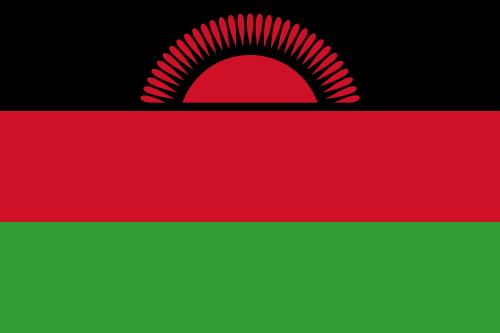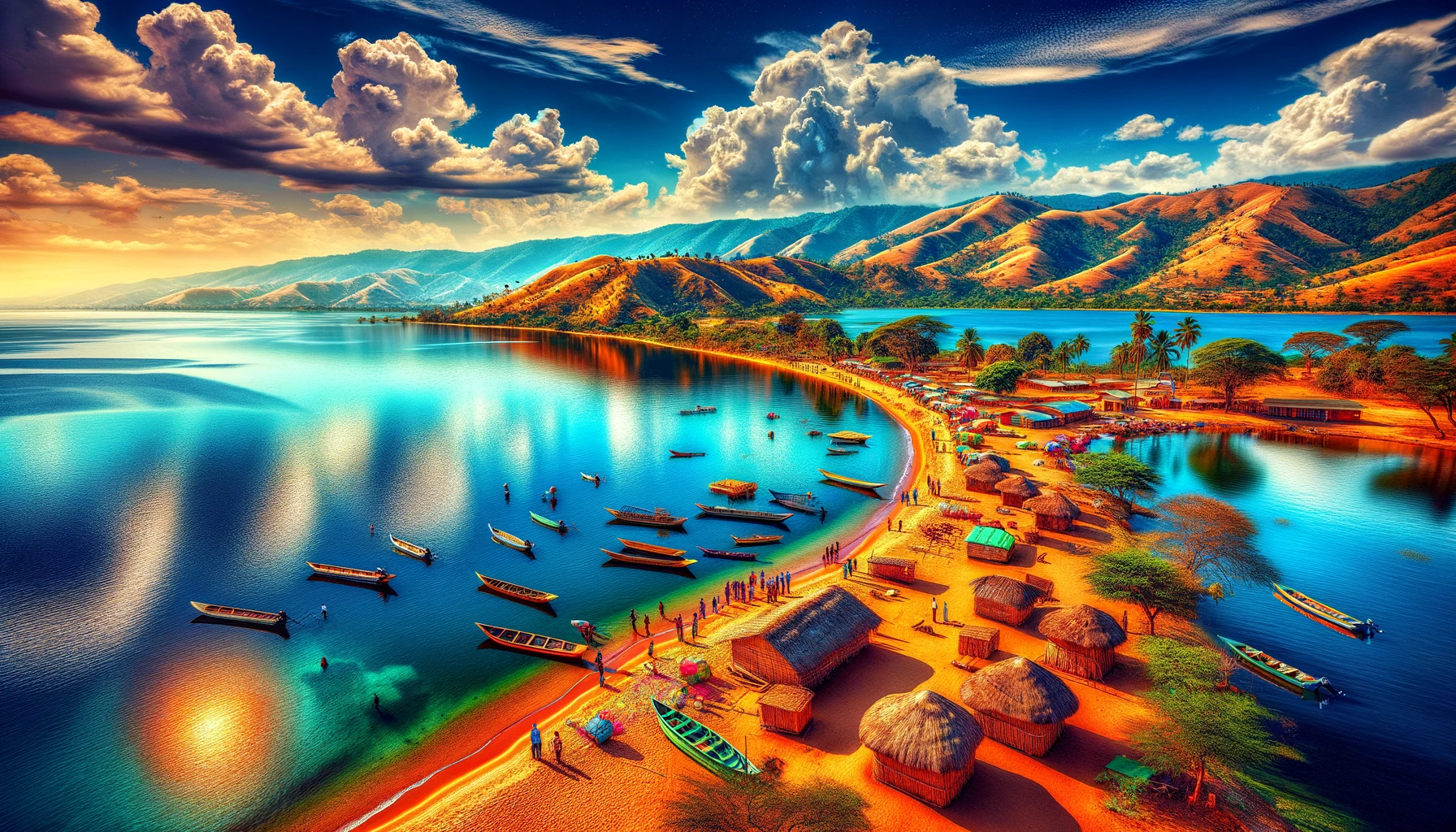Malawi, often known as the “Warm Heart of Africa,” is a nation with a rich cultural heritage and natural beauty but also faces significant developmental challenges. Its people are known for their resilience and hospitality, and the country is working towards sustainable growth and improved living standards for its diverse population. Malawi’s future hinges on its ability to address economic, social, and environmental issues while capitalizing on its cultural and natural resources.
List of National and Public Holidays in Malawi, Africa for the year 2025
- New Year’s Day is on Wednesday, 1st January 2025.
- John Chilembwe Day is on Wednesday, 15th January 2025.
- Martyrs’ Day is on Monday, 3rd March 2025.
- Eid al-Fitr is on Sunday, 30th March 2025.
- Eid al-Fitr Holiday is on Monday, 31st March 2025.
- Good Friday is on Friday, 18th April 2025.
- Easter Monday is on Monday, 21st April 2025.
- Labour Day is on Thursday, 1st May 2025.
- President Kamuzu Banda’s Birthday is on Wednesday, 14th May 2025.
- Independence Day is on Sunday, 6th July 2025.
- Independence Day Holiday is on Monday, 7th July 2025.
- Mother’s Day is on Wednesday, 15th October 2025.
- Christmas Day is on Thursday, 25th December 2025.
- Boxing Day is on Friday, 26th December 2025.
List of National and Public Holidays in Malawi, Africa for the year 2024
- New Year’s Day: Monday, 1 January
- John Chilembwe Day: Monday, 15 January
- Martyrs’ Day: Sunday, 3 March
- Martyrs’ Day Holiday: Monday, 4 March
- Good Friday: Friday, 29 March
- Easter Monday: Monday, 1 April
- Eid al-Fitr: Wednesday, 10 April
- Labour Day: Wednesday, 1 May
- President Kamuzu Banda’s Birthday: Tuesday, 14 May
- Independence Day: Saturday, 6 July
- Independence Day Holiday: Monday, 8 July
- Mother’s Day: Tuesday, 15 October
- Christmas Day: Wednesday, 25 December
- Boxing Day: Thursday, 26 December
History
- Early Inhabitants: The area now known as Malawi has been inhabited for thousands of years by hunter-gatherers and later, Bantu-speaking peoples.
- Colonial Era: In the late 19th century, the British established the protectorate of Nyasaland. This period was marked by significant infrastructure development but also resistance against colonial rule.
- Independence: Malawi gained independence in 1964 under the leadership of Dr. Hastings Kamuzu Banda, who became its first President.
- Recent History: The early 1990s saw a transition from one-party rule to a democratic government. Since then, Malawi has held regular multi-party elections, though it has faced political and economic challenges.
Geography
- Location: Malawi is a landlocked country in southeastern Africa, bordered by Tanzania, Mozambique, and Zambia.
- Lake Malawi: Dominating the country’s topography is Lake Malawi (also known as Lake Nyasa), one of Africa’s Great Lakes, known for its unique biodiversity.
- Climate and Regions: The country has diverse landscapes ranging from the highlands to the low-lying Shire Valley. The climate is subtropical, with a rainy season from November to April.
Culture
- Ethnic Groups: The Chewa are the largest ethnic group, followed by the Lomwe, Yao, and others. Each group has its own cultural practices and languages.
- Languages: The official language is English, used in government and education, while Chichewa is the national language widely spoken by the population.
- Religion: Christianity is predominant, along with a significant Muslim minority and indigenous beliefs.
- Arts and Festivals: Music and dance are integral, with traditional styles like the Malipenga and Gule Wamkulu. The Lake of Stars Festival is a well-known international music event.
Economy
- Agriculture: The backbone of Malawi’s economy, with tobacco, tea, sugar, and coffee as major cash crops. Most of the population relies on subsistence farming.
- Challenges: Despite agricultural productivity, Malawi faces challenges such as poverty, food insecurity, and reliance on foreign aid.
- Industry and Services: Limited industrial sector focusing on consumer goods. The service sector is growing, with tourism centered around Lake Malawi and national parks.

Politics
- Government Structure: Malawi is a democratic republic with a presidential system. The President is both the head of state and government.
- Legal System: Based on the English common law system and customary laws of indigenous groups.
- Human Rights and Governance: While there are democratic freedoms, Malawi grapples with issues like corruption, media freedom, and gender inequality.
Society
- Population: Malawi has a high population density, with a significant youth demographic. Rural-urban migration is increasing, though most Malawians live in rural areas.
- Education and Health: Education is a priority, but the system faces challenges like overcrowding and resource shortages. Health issues include HIV/AIDS, malaria, and high maternal mortality rates.
- Cultural Practices: Some traditional practices and beliefs impact social issues, such as gender roles and health practices.
Science and Technology
- Research and Development: Focuses primarily on agriculture and health. Institutions like the University of Malawi are central to research efforts.
- Technology Adoption: Slow but steady growth in technology use, particularly mobile technology for communication and financial services.
Arts and Literature
- Literary Scene: A growing body of literature, with authors like Legson Kayira and Jack Mapanje, reflecting on cultural, political, and social themes.
- Visual and Performing Arts: Rich tradition of crafts, including mask-making, basketry, and painting. Traditional and contemporary dance and music are vibrant aspects of Malawian life.
Sports
- Popular Sports: Football is the most popular sport, followed by netball, especially among women. There are efforts to develop other sports like basketball and cricket.
- National Teams: The Malawi national football team, known as the Flames, and the national netball team, the Queens, represent the country in international competitions.
International Relations
- Foreign Relations: Maintains diplomatic relations with countries around the world and is a member of the United Nations, African Union, and Southern African Development Community (SADC).
- Development Partnerships: Relies on partnerships with international donors and NGOs for development projects and aid.
Challenges and Prospects
- Economic Development: Focusing on diversifying the economy beyond agriculture, improving infrastructure, and attracting investment.
- Social Issues: Addressing poverty, healthcare, and education quality are ongoing challenges.
- Environmental Concerns: Balancing economic development with conservation, especially concerning Lake Malawi and forest resources.
In summary,

